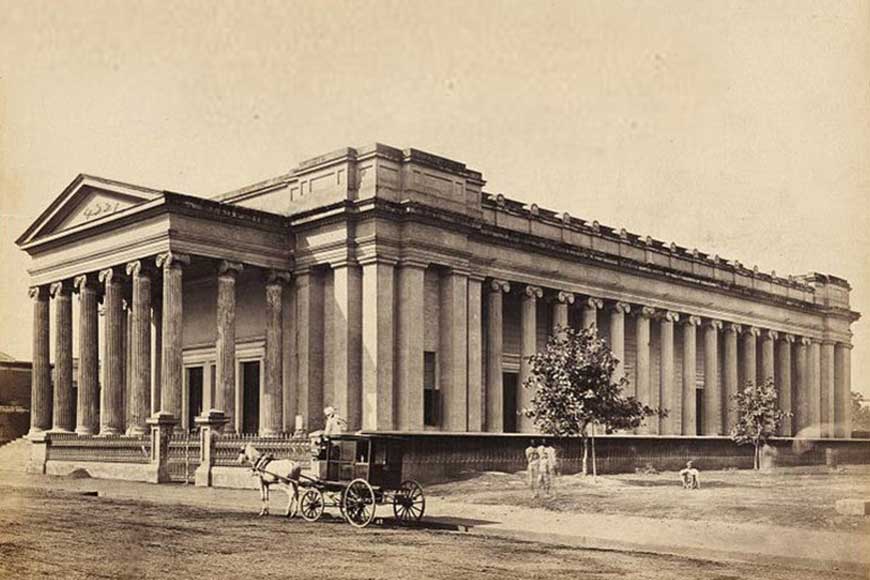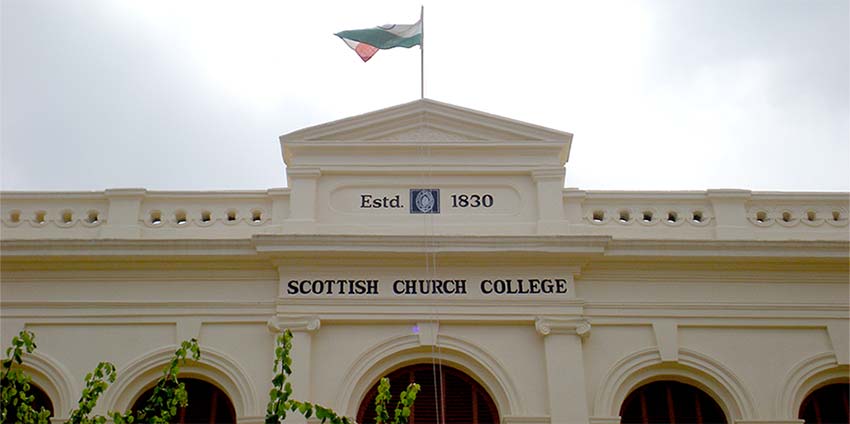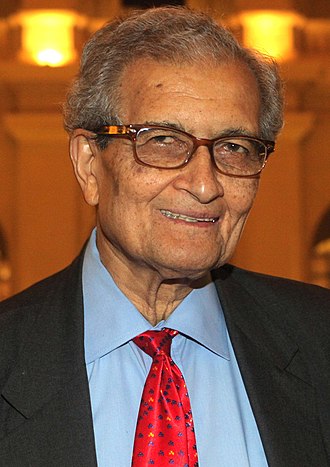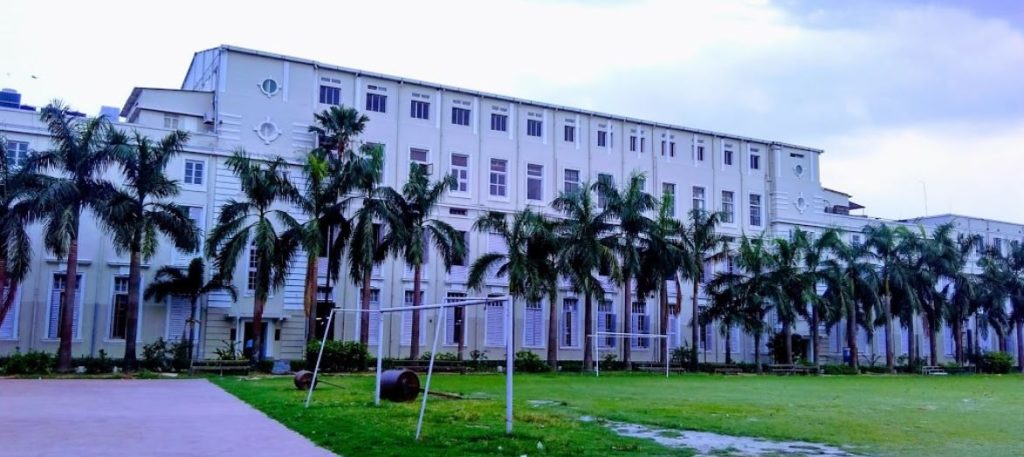The Illuminating Path of Education in Colonial India: Calcutta Led the Way Jul 30, 2024

Calcutta University
As the sun rose over the sprawling metropolis of Calcutta (now Kolkata) in the early 19th century, a new dawn of enlightenment was on the horizon. The city, then the capital of British India, found itself at the epicenter of a remarkable educational revolution – one that would shape the future of an entire nation.
In the throes of colonial rule, the thirst for knowledge burned bright within the hearts of India’s intellectual elite. They recognized that education held the key to unlocking the shackles of subjugation, empowering the masses with the tools to reclaim their cultural identity and pave the way for progress.
The Birth of Modern Education in Calcutta:
It was in this fertile ground that the seeds of modern education in India were sown. The pioneering efforts of the British East India Company, coupled with the tireless dedication of Indian reformers and scholars, gave rise to a network of educational institutions that would become the envy of the subcontinent. One of the earliest and most influential establishments was the Hindu College, founded in 1817 by the eminent scholar Raja Ram Mohan Roy. This institution blazed a trail, offering a curriculum that seamlessly blended Western concepts with the rich tapestry of Indian thought and tradition. It was here that the young minds of Bengal were nurtured, instilling in them a profound appreciation for their cultural heritage while equipping them with the tools to navigate the rapidly changing world.

The Hindu College was not alone in its mission. Institutions like the Sanskrit College (1824) and the Calcutta Madrasa (1781) emerged as bastions of learning, dedicated to preserving and propagating the ancient wisdom of India’s diverse intellectual traditions.
A Melting Pot of Ideas and Ideologies:
Calcutta’s educational landscape was a vibrant tapestry, woven with threads of diverse ideologies and philosophies. The city became a melting pot of ideas, where the boundaries between East and West blurred, giving rise to a unique synthesis of knowledge.

The Winds of Change: Empowering the Masses
As the 19th century progressed, the winds of change swept through Calcutta’s educational landscape. The British colonial administration, recognizing the importance of an educated populace, began to actively promote Western-style education, often at the expense of traditional Indian systems.
The establishment of the Calcutta University in 1857, the first modern university in India, marked a pivotal moment in this journey. It became a beacon of higher learning, attracting students from across the subcontinent and fostering a culture of academic excellence.
The impact of these educational initiatives reverberated far beyond the confines of Calcutta. The city’s institutions served as a breeding ground for some of India’s most illustrious minds, including the likes of Rabindranath Tagore, Swami Vivekananda, and Netaji Subhas Chandra Bose – luminaries who would go on to shape the course of India’s independence struggle and cultural renaissance.
Amartya Sen: Carrying the Torch of Calcutta’s Educational Legacy

While Amartya Sen wasn’t directly involved in the colonial-era educational developments described in the original text, his work and legacy certainly contribute to Calcutta’s ongoing educational prestige.
Amartya Sen, Nobel Laureate in Economics from Calcutta, exemplifies the city’s enduring educational legacy. Born in 1933, Sen experienced the tail end of colonial education and its transition post-independence. His groundbreaking work on welfare economics, social choice theory, and development economics reflects the intellectual rigor fostered by Calcutta’s academic institutions.
Sen’s scholarship at Presidency College (formerly Hindu College) and later at Jadavpur University demonstrates how Calcutta’s educational ecosystem continued to nurture world-class thinkers long after the colonial era. His global influence in economics and philosophy underscores how the “illuminating path” initiated in colonial Calcutta continues to shape global discourse through its illustrious alumni.
A Legacy that Endures:
Today, as we stand on the precipice of a new era, the legacy of Calcutta’s educational prowess endures. The city’s institutions continue to nurture generations of scholars, artists, and leaders, each one carrying the torch of knowledge passed down through centuries of rich intellectual discourse.
From the hallowed halls of Presidency University (formerly Hindu College) to the corridors of Jadavpur University and the Indian Institute of Technology Kharagpur, the spirit of learning and innovation remains undiminished, a testament to the city’s unwavering commitment to the pursuit of knowledge.

As we reflect on this remarkable journey, we cannot help but marvel at the resilience and determination of those who came before us. Their unwavering belief in the transformative power of education paved the way for a nation to rise from the ashes of colonialism, reclaiming its rightful place on the global stage. Calcutta’s legacy as the pioneer of modern education in India is a source of immense pride, a shining beacon that continues to guide us towards a future where knowledge knows no bounds and the thirst for learning never wanes.
Sources and References:
- Dharampal-Smriti. (2000). The Beautiful Tree: Indigenous Indian Education in the Eighteenth Century. Bibliophile South Asia.
- Jayapalan, N. (2005). History of Education in India. Atlantic Publishers & Dist.
- Raina, D., & Habib, S. I. (2004). Domesticating Modern Science: A Social History of Science, Philosophy and Culture in Colonial India. Tulika Books.
- Sarkar, S. (2008). The Calcutta University and the Family: A Historiographical Exploration. In R. Sarkar & S. Sarkar (Eds.), Transcending the Boundaries: Towards a New Discourse on Gender, Education and Society (pp. 27-42). Gyan Sagar Publications.
- Sinha, N. K. (2004). The Cultural Roots of Education: A Historical Study of Western and Indian Educational Ideas and Institutions. Manohar Publishers & Distributors.
- Zastoupil, L., & Moir, M. (Eds.). (1999). The Great Indian Education Debate: Documents Relating to the Orientalist-Anglicist Controversy, 1781-1843. Routledge.
- https://www.jagranjosh.com/general-knowledge/development-of-education-during-british-period-in-india-1445314601-1
